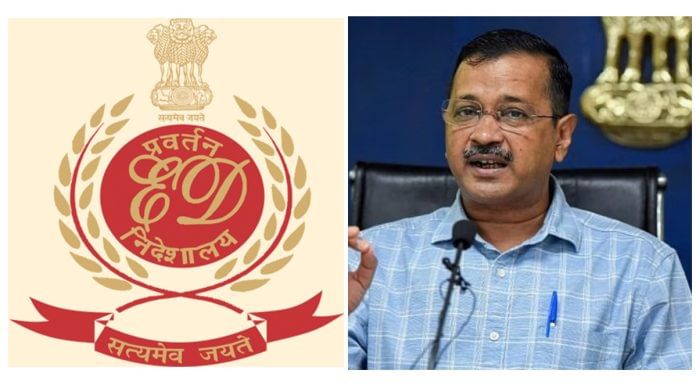Arvind Kejriwal, the chief minister of Delhi, was granted interim bail by the Supreme Court in a money-laundering case involving the Enforcement Directorate and the Delhi liquor policy case. However, Mr. Kejriwal will be incarcerated as the Central Bureau of Investigation (CBI) is still questioning him over an unrelated matter.
The ruling was delivered by a bench consisting of Justices Sanjiv Khanna and Dipankar Datta. In the excise policy case brought by the ED, the court granted Mr. Kejriwal temporary release, noting that he had been incarcerated for more than ninety days.
The AAP hailed the Supreme Court's decision. “Satyamev Jayate (truth alone triumphs)", the party posted on X (formerly Twitter) in Hindi along with a picture of Mr Kejriwal holding the national flag.

Aam Aadmi Party (AAP) leader Mr. Kejriwal was detained on March 21 by the Enforcement Department (ED) in connection with a money laundering case pertaining to the purported Delhi liquor policy fraud. The 55-year-old had contested the Delhi High Court's April 9 ruling that denied him relief in his appeal.
Mr. Kejriwal had ignored many summonses and failed to cooperate with the inquiry, thus the high court had supported his arrest in the case, ruling that there was nothing criminal about it and that the central investigative agency had "little option" now.
Background of the Delhi Liquor Policy Case
The Delhi liquor policy was overturned, and the ED and CBI are also looking into the money laundering aspect of it.

November 2021 saw the introduction of the excise policy, which allowed private license holders to operate outlets while Delhi government ceased retail alcohol sales. Naresh Kumar, chief secretary of Delhi, accused liquor license holders in July 2022 of serious deviations from policy and receiving “undue benefits”. The said policy was abandoned by September that year.
The CBI stated that liquor firms were part of the process that formulated the excise policy, which would have earned profit margins of 12%. It argued that there is a booze lobby known as ‘South Group’ which bribed Aam Aadmi Party with Rs.100 crore some of whose part went to government officials. Enforcement Directorate allegedly laundered the kickbacks.
You might also be interested in - ED charges Arvind Kejriwal in Delhi liquor policy case
/thetatva/media/agency_attachments/2024-10-11t075417641z-tatva-logo-white-yashodhar-gulati-crop.png)
/thetatva/media/agency_attachments/2024-10-11t075412214z-tatva-logo-white-yashodhar-gulati-crop.png)
/thetatva/media/member_avatars/2024-10-14t143357128z-d0bd7edb282ec6aef152be641d8e8648.png)
/thetatva/media/post_attachments/wp-content/uploads/2024/06/66766c1b5d9e0-arvind-kejriwal-225422542-16x9-1.webp)